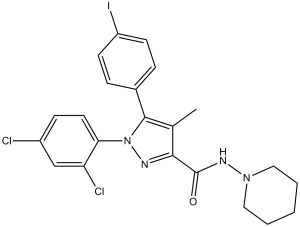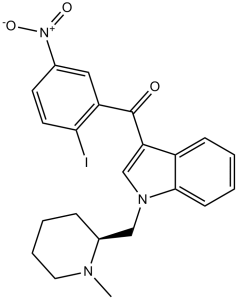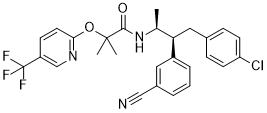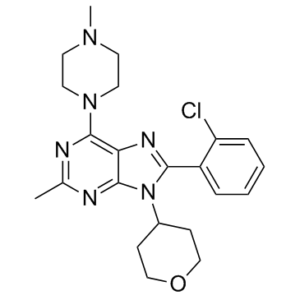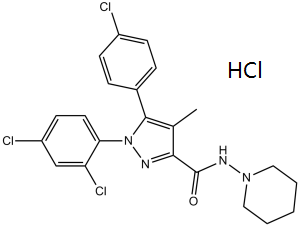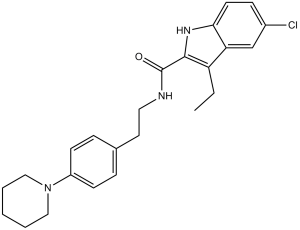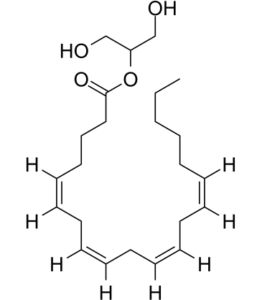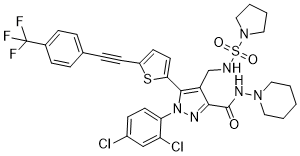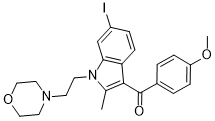AM251 (AM-251; AM 251) is a novel, potent and selective cannabinoid (CB) receptor antagonist with potential anti-obesity effect.
AM-1241 (AM1241; AM 1241), an aminoalkylindole analog, is a novel, potent and selective cannabinoid (CB2) receptor agonist with potential analgesic effects (pain-killing).
Taranabant (aslo known as MK-0364) is a novel, highly potent and selective cannabinoid 1 (CB1) receptor inverse agonist being investigated as a potential treatment for obesity due to its anorectic effects.
LY2828360 (LY-2828360) is a potent, slowly signaling, G protein-biased CB2 cannabinoid agonist that lacked both toxicity and efficacy in a clinical trial for osteoarthritis.
Rimonabant (also known as SR141716, SR-141716A; A 281) is a novel, potent and selective antagonist (inverse agonist) of cannabinoid CB1 receptor with IC50 of 13.6 nM and EC50 of 17.3 nM in hCB1 transfected HEK 293 membrane.
Org 27569 (Org27569; Org-27569), similar to the anorectic antiobesity drug rimonabant, is a novel, potent and selective allosteric modulator of cannabinoid CB1 receptor with anti-obesity effects.
2-Arachidonoylglycerol, an endocannabinoid compound, is an endogenous agonist for the cannabinoid (CB1) receptor in the central nervous system.
CB1-IN-1 (also known as DBPR211) is a novel, potent, peripherally restricted antagonist of the CB1R (cannabinoid 1 receptor) with Ki values of 0.3 nM and 21 nM for CB1R (EC50 of 3 nM) and CB2R, respectively.
Iodopravadoline, formerly known as AM630, is an inverse agonist at the human cannabinoid CB1 receptor.
RTICBM-189 (RTICBM189) is brain penetrant and allosteric modulator of the cannabinoid 1 (CB1) receptor (pIC50 = 7.54 in Ca2+ mobilization assay).
